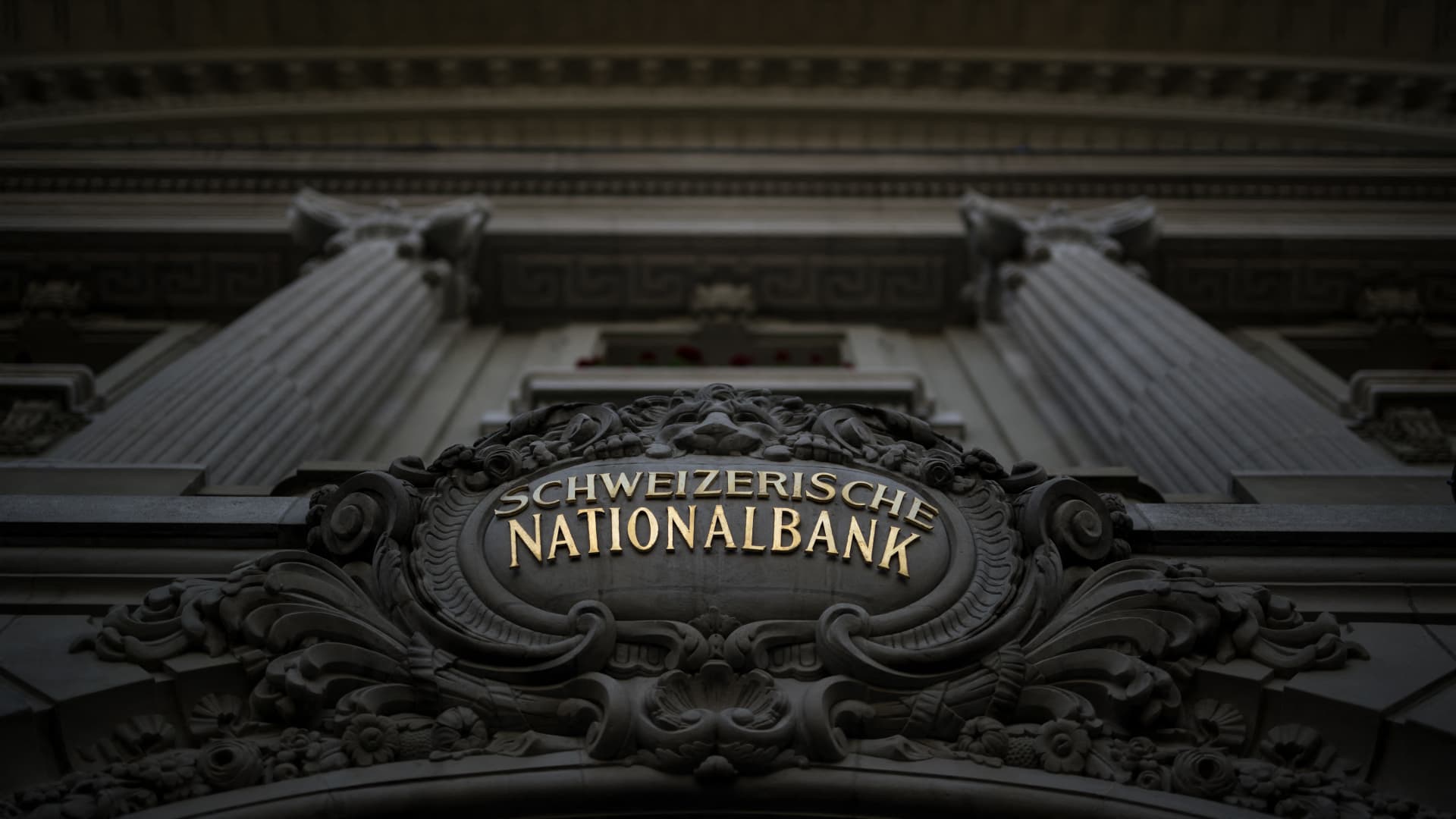Swiss central bank hikes interest rates by 50 basis points to counter ‘further spread of inflation’

The Swiss National Bank hikes interest rates again.
FABRICE COFFRINI / Contributor / Getty Images
The Swiss National Bank increased its benchmark interest rate Thursday for the third time this year, taking it to 1%.
The central bank said it was looking to counter “increased inflationary pressure and a further spread of inflation” with the move.
Inflation in the country remains well above the Swiss National Bank’s target of 0-2%, but is noticeably below the soaring rates of neighboring European countries. Switzerland’s inflation rate remained steady at 3% last month, having dropped from a three-decade high of 3.5% in August.
The central bank’s 50 basis point hike Thursday came after it unexpectedly raised its policy interest rate for the first time in 15 years in June, taking it from -0.75% to -0.25%. It then entered positive territory with a 75 basis point increase on Sep. 22.
And there could be further hikes on the horizon.
“It cannot be ruled out that additional rises in the SNB policy rate will be necessary to ensure price stability over the medium term,” a press release from the central bank said.
“To provide appropriate monetary conditions, the SNB is also willing to be active in the foreign exchange market as necessary,” it added.
Global slowdown
In announcing its latest rate hike, the Swiss National Bank noted the global slowdown in growth and that inflation is “markedly above” central banks’ targets in many countries — and it doesn’t expect this to change any time soon.
“The SNB expects this challenging situation to persist for now. Global economic growth is likely to be weak in the coming quarters, and inflation will remain elevated for the time being,” the press release said.
In the medium term, however, the bank expects inflation to settle at more moderate levels as countries continue to tighten monetary policy.
Charlotte de Montpellier, senior economist at ING, noted that the Swiss National Bank’s total increase of 175 basis points in 2022 compares to an expected 250 basis-point increase in the eurozone and a 425 basis-point hike in the U.S.









